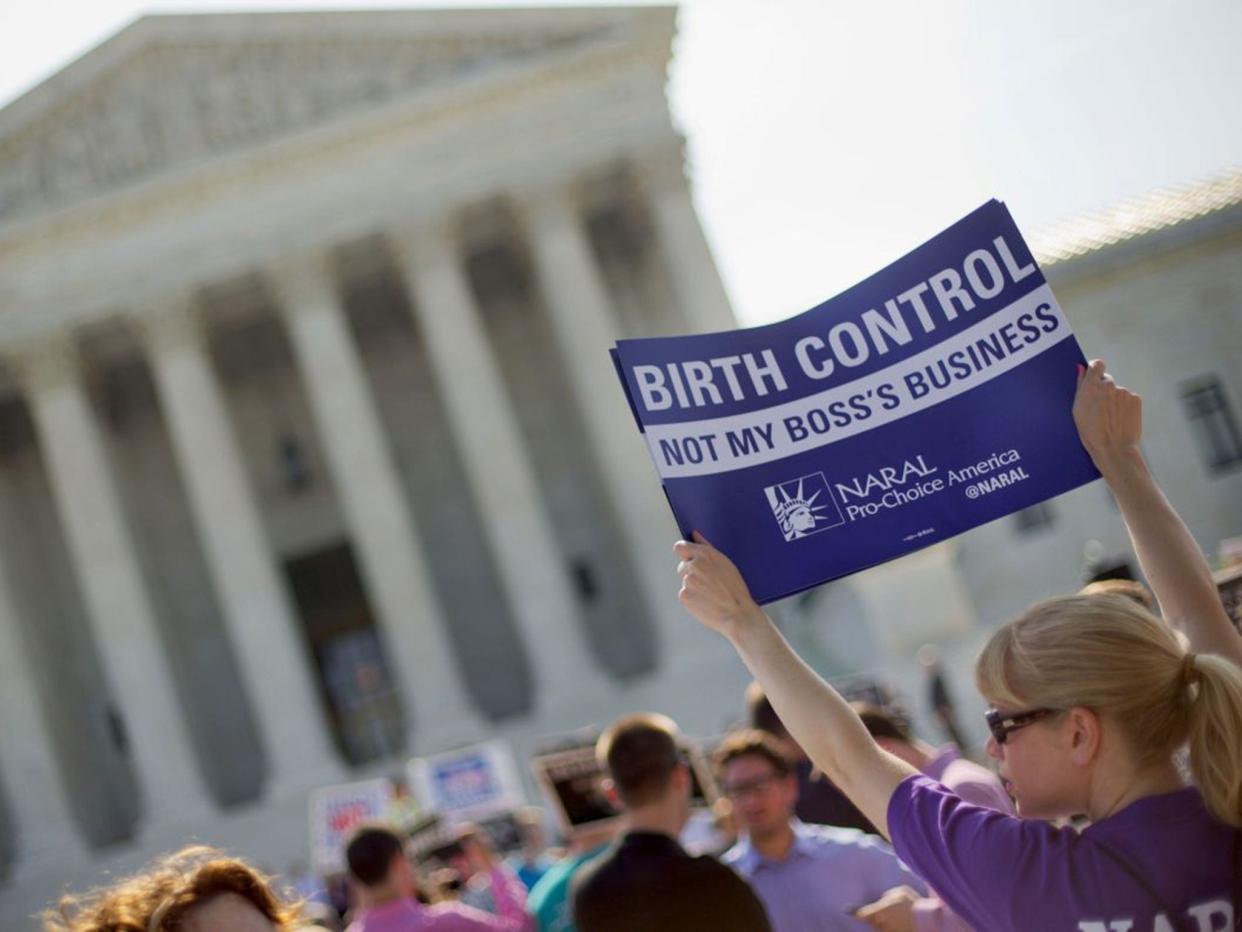Trump administration can allow employers to deny birth control, Supreme Court rules

The US Supreme Court has sided with a policy under Donald Trump's administration that allows employers with religious or moral objections to limit access to birth control, a blow to an Affordable Care Act mandate to expand women's access to preventative healthcare.
Rule changes could impact as many as 126,000 people, according to government estimates.
Justices Ruth Bader Ginsburg and Sonya Sotomayor dissented in the high court's 7-2 decision.
In her dissent, Justice Ginsburg wrote: "In accommodating claims of religious freedom, this Court has taken a balanced approach, one that does not allow the religious beliefs of some to overwhelm the rights and interests of others who do not share those beliefs. Today, for the first time, the Court casts totally aside countervailing rights and interests in its zeal to secure religious rights to the nth degree."
Brigitte Amiri, deputy director of the American Civil Liberties Union's Reproductive Freedom Project, called the ruling "shameful".
"Religious liberty is a fundamental right, but it does not grant a license to discriminate," she said in a statement. "Denying employees and students coverage for birth control will limit their ability to decide whether and when to have a family and make other decisions about their futures. And it will exacerbate existing inequalities, falling hardest on people with the fewest resources and people of colour."
Following its passage by former president Barack Obama in 2010, the Affordable Care Act required preventive healthcare and screenings for women, followed by requirements that employers and insurers allow no-cost coverage for contraceptive care approved by the Food and Drug Administration.
Whiles houses of worship were exempt, nonprofit organisations like schools, charities and hospitals that are affiliated with religious groups were not.
A challenge to the rule was deferred in 2016. Following Mr Trump's presidency, the administration changed the rule to allow those organisations to opt out from coverage.
The decision in Little Sisters of the Poor Saints Peter and Paul Home vs Pennsylvania follows another 7-2 ruling on Wednesday that exempts teachers at private schools from antidiscrimination rules if the case involves religious instruction.
That ruling effectively expands the definition of "ministerial exception," a legal principle based on First Amendment protections that bars ministers at religious organisations from suing their employers.
More follows...
Read more
Religious schools immune from discrimination suits, Supreme Court says
Supreme Court blocks controversial Louisiana abortion law
Biden urges Trump to drop 'heartless crusade' to dismantle Obamacare

 Yahoo News
Yahoo News 
